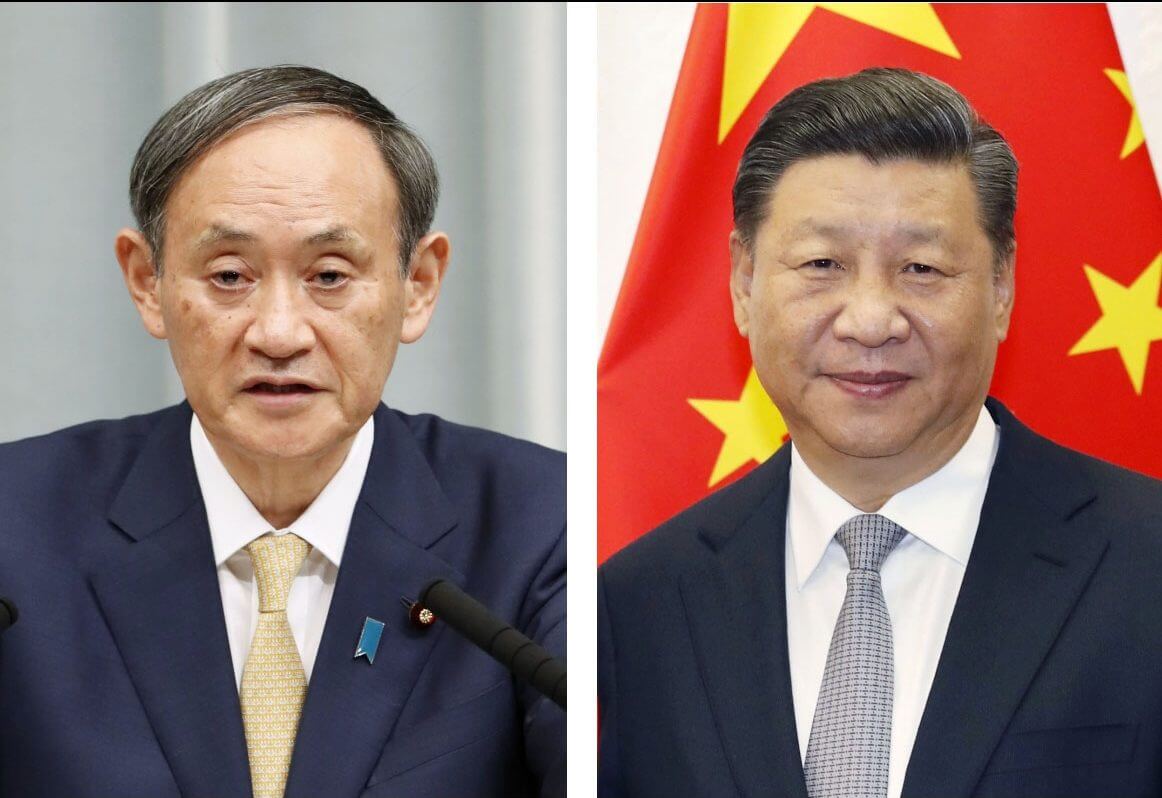Two days after Japanese Prime Minister (PM) Yoshihide Suga invited China’s ire for referring to Taiwan as a “country,” Chief Cabinet Secretary Katsunobu Kato on Friday said there is “no change” in Japan’s position towards the Chinese-claimed island.
During a nationally televised Diet debate on Wednesday, PM Suga noted that Australia, New Zealand, and Taiwan are “three countries that have imposed strong curbs on individual rights” amid the COVID-19 crisis. The comment predictably ruffled feathers in Beijing and prompted it to protest against Japan.
On Thursday, Chinese foreign ministry spokesperson Wang Wenbin called out Tokyo for violating the 1972 joint declaration, which was issued when the two countries formalised relations. “We strongly deplore Japan’s erroneous remarks and have lodged solemn complaints with Japan, demanding that it immediately make clear clarifications to eliminate the adverse effects caused by relevant remarks, and to ensure that such situations will not happen again,” Wang said. He added that PM Suga’s statement not only “broke Japan’s solemn promise not to regard Taiwan as a country,” but also threatened to undermine the diplomatic foundation of Sino-Japan ties.
In line with the one-China policy, the 1972 communiqué states that Japan “fully understands and respects” that Taiwan is an “inalienable part” of Chinese territory.
According to the Associated Press, Kato attributed the accidental slip-up to the fact that “Japan’s position is to maintain working relations with Taiwan at the non-government level,” reaffirming that “there is no change in Japan’s basic position of maintaining a non-governmental, practical relationship with Taiwan.”
The comments come against the backdrop of the Group of Seven (G7) meeting in Cornwall, United Kingdom (UK) over the past weekend. The G7’s most recent communiqué extended overwhelming support to Taiwan by criticising China for its actions in Taiwan, Hong Kong, and Xinjiang and also opposed Beijing’s “unilateral attempts to change the status quo” in the East and South China Seas.
Japan’s upper house of the parliament also adopted a resolution on Friday, calling on the World Health Organization (WHO) to include Taiwan in its general meetings and arguing that Taipei’s expertise on Covid-19 measures is indispensable. However, Beijing says that only the PRC has the right to represent all of China in the United Nations (UN) and other international organizations, including the WHO, that limit membership to states, arguing that Taiwan is a province of China and not an independent state.
Although PM Suga’s recent comments may only be a blip in Tokyo’s relationship with Beijing, it falls in line with the West’s changing attitude towards China’s increasing crackdown in its affiliated territories and Taiwan, which it also considers to be a part of its territory.

